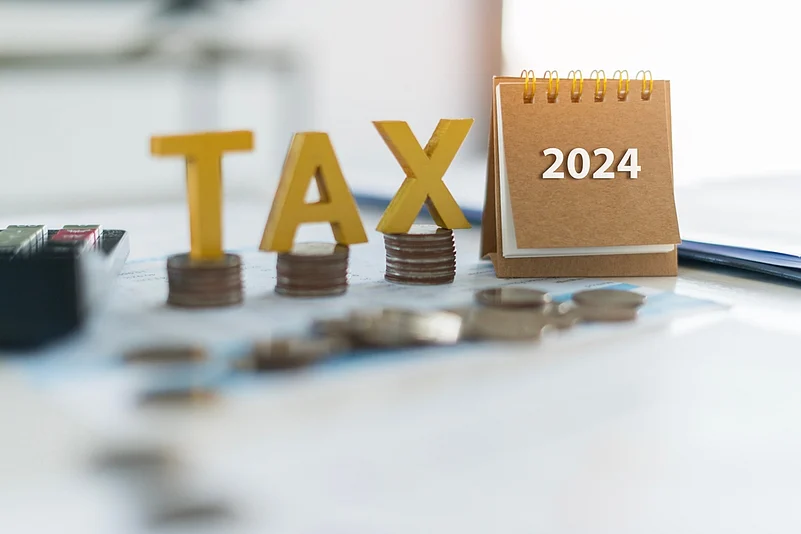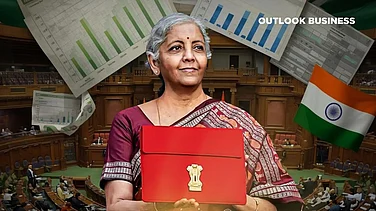The government's desire to push the New Tax Regime became evident last year when the threshold limit of income for eligibility for rebate under Section 87A was raised from 5 lakhs to 7 lakhs under the New Tax Regime. At the same time, the amount of tax rebate was also raised from Rs. 12,500/- to Rs. 25,000/- for those opting for New Tax Regime. Specific provisions for marginal relief were also introduced in case the taxable income exceeded the threshold limit in the case of the New Tax Regime. In this budget also the finance minister has proposed certain amendments to make the New Tax Regime more attractive. Let us discuss these proposals.
Higher Standard deduction for salaried employees:
Salaried and a retired person are allowed a fixed standard deduction of Rs. 50,000/- against their taxable salary and pensions under both tax regimes. The finance minister has proposed a higher standard deduction of Rs. 75,000/- against your salary or pension income if you opt for the New Tax Regime. For those opting for the Old Tax Regime, the standard deduction will continue to remain Rs. 50,000/.
Higher deduction for employer’s contribution toward your NPS (National Pension System)
Under the present scheme of taxation employer’s contribution towards your NPS account is first added to your income and then the same is allowed as a deduction under Section 80CCD(2) under both tax regimes. Central Government employees can claim the deduction, in respect of the employer’s contribution to their NPS account, up to 14% of their salary. For others, the maximum deduction is restricted to only 10% of the salary. To make the New Tax Regime more attractive for salaried employees, the government has proposed to raise the limit of 10% for employer’s contribution to 14% of the salary for contribution toward the NPS account for all categories of employees under the New Tax Regime.
Please note that though the finance minister has proposed to raise the percentage limit concerning the employer’s contribution towards your NPS account, the overall limit of Rs. 7.50 lakh has not been changed beyond which employer’s contribution towards your NPS, Provident Fund and superannuation taken together is gets taxed as it is treated as your perquisite.
Enhanced deduction with respect to family pension
Presently you are eligible to claim a deduction of an amount equal to 1/3 of the family pension received by you subject to a maximum of Rs. 15,000/- as standard deduction against the family pension received by you. The same is proposed to be enhanced to a maximum of Rs. 25,000/- provided you opt for the New Tax Regime. I do not think this will have any significant impact on a person choosing between the Old and New Tax Regime.
Revised rates and slabs
The finance minister has proposed some tweak in the tax slabs and tax rates for the New Tax Regime from current financial year. The present and proposed tax slabs and tax rates are tabulated below for easy compassion.
.png?w=701&auto=format%2Ccompress&fit=max&format=webp&dpr=1.0)
From the above discussion, it is apparent that the government is trying its best to lure the salaried people to opt for the new tax regime. The new tax regime becomes very attractive for those who are under the lower tax slabs and are not able to spare money to invest to be eligible for various investment-based deductions.
However, looking at the benefits and deductions which a salaried person has to forgo for opting into the New Tax Regime like House Rent Allowance, Leave Travel Concession, deductions under Section 80C and 80D and tax benefits in respect of a home loan, in most of the cases, the old tax regime is beneficial, especially for the younger people who are either staying in rented premises or are servicing a home loan.
Writer is a tax and investment expert and can be reached at jainbalwant@gmail.com and on his twitter handle @jainbalwant
(Disclaimer: Views expressed are the author’s own, and Outlook Money does not necessarily subscribe to them. Outlook Money shall not be responsible for any damage caused to any person/organisation directly or indirectly.)

























